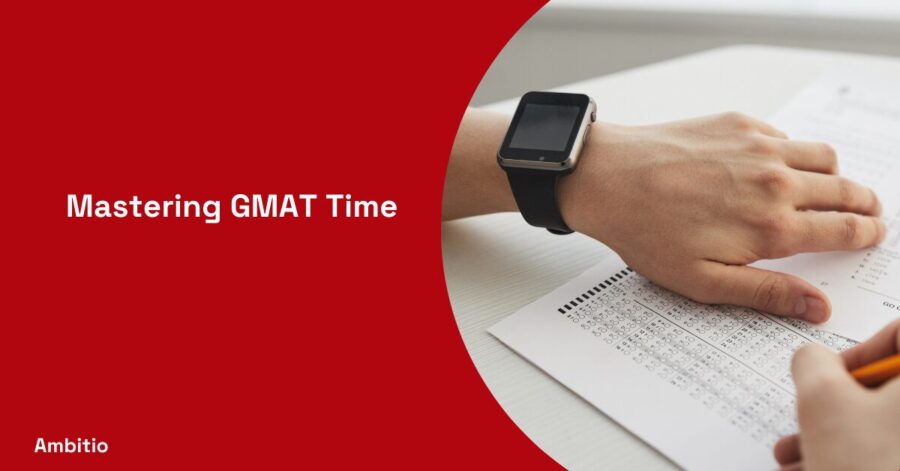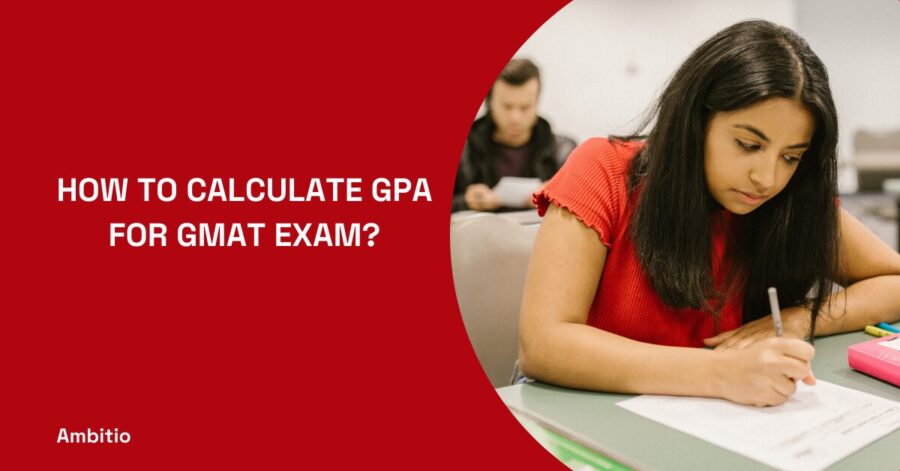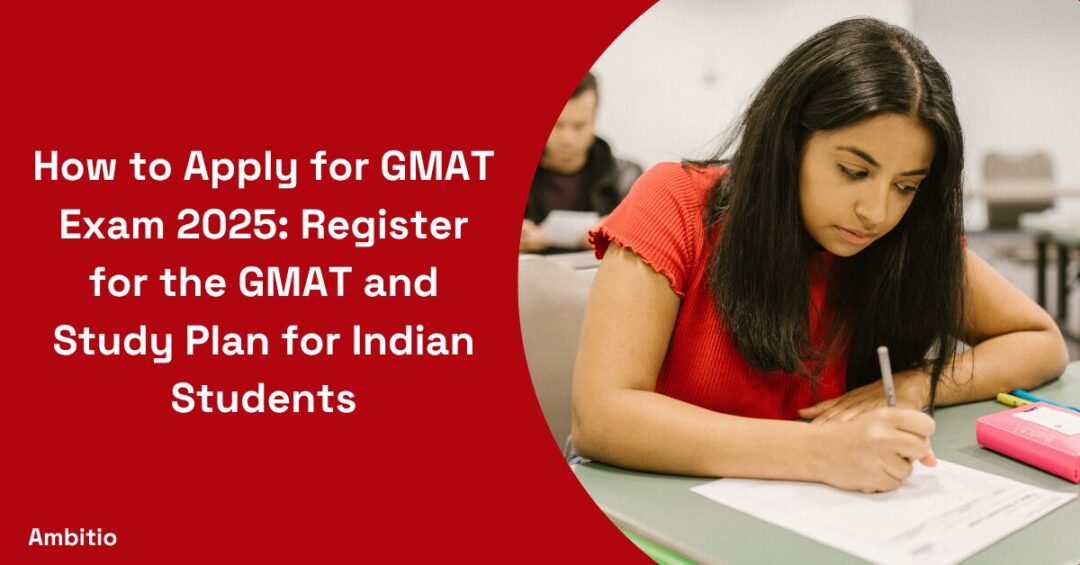11 December 2024
5 minutes read
Mastering GMAT Time: Essential Strategies for Effective GMAT Preparation

Embarking on the journey to conquer the Graduate Management Admission Test (GMAT) is a pivotal step for any aspiring business school student. The GMAT is not just a test of your academic abilities but also a test of your time management and strategic planning skills.
This comprehensive guide is designed to help you navigate through the intricacies of the GMAT, focusing on the crucial aspect of GMAT time management and effective preparation strategies to optimize your performance.
Demystifying the GMAT Exam: An Overview
The GMAT exam, recognized globally by business schools, is a standardized test that assesses analytical, writing, quantitative, verbal, and reading skills in written English. Understanding the structure and timing of the GMAT is crucial for effective preparation.
The Composition of the GMAT Exam
The GMAT consists of four distinct sections:
- Analytical Writing Assessment (AWA): In this 30-minute section, candidates analyze an argument, evaluate its reasoning, and write a critique. It tests your critical thinking and communication skills in English.
- Integrated Reasoning (IR): This 30-minute segment consists of 12 questions that evaluate your ability to synthesize information from various sources and formats, testing your data analysis skills.
- Quantitative Reasoning: Spanning 62 minutes, this section involves 31 questions, focusing on problem-solving and data sufficiency, and is designed to assess your quantitative analysis skills.
- Verbal Reasoning: Over 65 minutes, this part tests your reading comprehension, critical reasoning, and sentence correction skills through 36 questions
.
Timing Strategy for the GMAT Exam
Effective time management is crucial for the GMAT. Allocate your time wisely across the sections:
- AWA: Spend the first few minutes planning your essay and the remaining time writing and reviewing it.
- IR: Practice pacing yourself to spend about 2-3 minutes per question.
- Quantitative Section: Aim to spend no more than 2 minutes per question.
- Verbal Section: Allocate approximately 1-2 minutes per question, varying slightly based on the complexity of the questions.
Looking for GMAT preparation in 2 months? Check out this article: https://ambitio.club/blog/best-way-to-prepare-for-gmat-in-2-months
Tailoring Your GMAT Preparation Plan
Every GMAT aspirant has unique strengths and weaknesses. Customizing your preparation plan is essential for maximizing efficiency and effectiveness.
Assessing Your Starting Point
Begin by taking a diagnostic test to understand your current level. Identify your strengths and weaknesses in different sections. This assessment will help you allocate study time effectively, focusing more on areas that need improvement.
Building a Structured Study Plan
Create a realistic and structured study plan. Divide your preparation into phases:
- Initial Phase: Focus on understanding basic concepts and fundamentals in each section.
- Middle Phase: Intensify your practice with more complex problems and timed drills.
- Final Phase: Take full-length practice tests under exam-like conditions to build stamina and adapt to the GMAT’s time constraints.
Effective Time Management Strategies for GMAT Preparation
Time management during your preparation is as vital as during the exam. Develop a routine that allows for consistent study sessions while balancing other commitments.
Balancing Study with Other Responsibilities
- Set Realistic Goals: Establish daily and weekly goals that are achievable alongside your other responsibilities.
- Regular Short Sessions: Instead of lengthy, infrequent study sessions, opt for shorter, more regular study periods to maintain a consistent study rhythm and avoid burnout.
Utilizing Time Effectively
- Focused Study Sessions: Each session should have a clear focus, such as practicing a specific question type or reviewing a particular concept.
- Time-Bound Practice: Regularly practice with a timer to get accustomed to the pacing required for the GMAT.
Leveraging Technology and Resources for GMAT Prep
In this digital age, numerous resources and tools are available to assist in your GMAT preparation.
Online Resources and Apps
Make use of online platforms offering practice questions, mock tests, and tutorials. Mobile apps can be particularly useful for studying on the go, allowing you to utilize even small pockets of free time effectively.
The Role of Online Courses and Coaching
Consider enrolling in online courses or coaching if you need structured guidance. Many online courses offer flexibility and personalized study plans, which can be particularly beneficial.
The Psychological Aspect of GMAT Preparation
Preparing for the GMAT is not just about academic knowledge; it’s also a mental challenge. Maintaining a positive mindset and managing stress is crucial.
| Aspect | Challenges | Strategies |
|---|---|---|
| Mindset Management | Overcoming fear of failure, anxiety about performance, and negative self-talk. | Cultivate a growth mindset; view challenges as opportunities to learn. Practice positive affirmations and self-talk. Reflect on progress regularly. |
| Stress Management | High-stress levels due to intense preparation and pressure to perform well. | Incorporate relaxation techniques (e.g., meditation, deep breathing exercises). Maintain a healthy lifestyle with regular exercise and adequate sleep. |
| Confidence Building | Doubts about one’s ability to perform well and achieve the desired score. | Set achievable goals and celebrate small successes. Engage in regular practice tests to track improvement. Seek feedback and constructive criticism for improvement. |
| Motivation | Maintaining consistent motivation throughout the lengthy preparation period. | Set clear, specific, and realistic goals. Create a study schedule with varied activities to keep things interesting. Find a study partner or group for support. |
| Endurance Training | Building the stamina for a 3+ hour exam while staying focused and alert. | Practice with full-length tests under timed conditions. Take short, timed breaks during study sessions to simulate exam conditions. |
| Time Management | Balancing GMAT preparation with other life responsibilities and commitments. | Create a realistic study plan with allocated times for study, work, and leisure. Prioritize tasks and use time management tools like calendars and timers. |
| Emotional Resilience | Handling the ups and downs during preparation, including setbacks and failures. | Develop a support system (friends, family, mentors). Reflect on and learn from mistakes rather than dwelling on them. Stay adaptable and open to changing strategies. |
Final Preparations and Test Day Strategy
As the GMAT exam day approaches, shift your focus from learning new content to consolidating what you’ve learned and formulating your test day strategy.
The Last Week Before the Exam
Use the last week to review key concepts and practice relaxation techniques. Avoid cramming new information. Ensure you are well-rested and mentally prepared for the exam day.
Strategy for the Exam Day
On the day of the exam, have a clear strategy:
- Time Management: Be conscious of the time spent on each question. Don’t get stuck on difficult questions; it’s better to make an educated guess and move on.
- Mindset: Stay calm and focused. Remember, it’s a test of your preparation and time management skills as much as your academic knowledge.
Conclusion
Mastering the GMAT requires a well-rounded approach, combining academic preparation with effective time management, psychological readiness, and strategic planning.
By understanding the structure and timing of the GMAT, tailoring your preparation plan, and utilizing the right resources and strategies, you can significantly improve your performance and achieve your target score.
Remember, the journey to conquering the GMAT is as much about mastering the content as it is about mastering yourself.
FAQs
Q1: How important is the essay in the GMAT score?
The essay, part of the AWA section, is scored separately and does not contribute to the overall 800-point score. However, it is still important as business schools consider it a reflection of your analytical and writing skills.
Q2: Can I retake the GMAT if I’m not satisfied with my score?
Yes, you can retake the GMAT exam up to five times in a 12-month period, but no more than once in a 16-day period.
Q3: Are there any breaks during the GMAT exam?
Yes, there are two optional 8-minute breaks during the GMAT exam, but using them is up to the test taker’s discretion.
Q4: How long are GMAT scores valid?
GMAT scores are valid for five years from the date of the exam.
Q5: Can I choose the order in which I attempt the sections of the GMAT?
Yes, the GMAT offers three section order options, allowing you to choose the sequence that best suits your strengths and preferences.

You can study at top universities worldwide!
Get expert tips and tricks to get into top universities with a free expert session.
Book Your Free 30-Minute Session Now! Book a call now




























